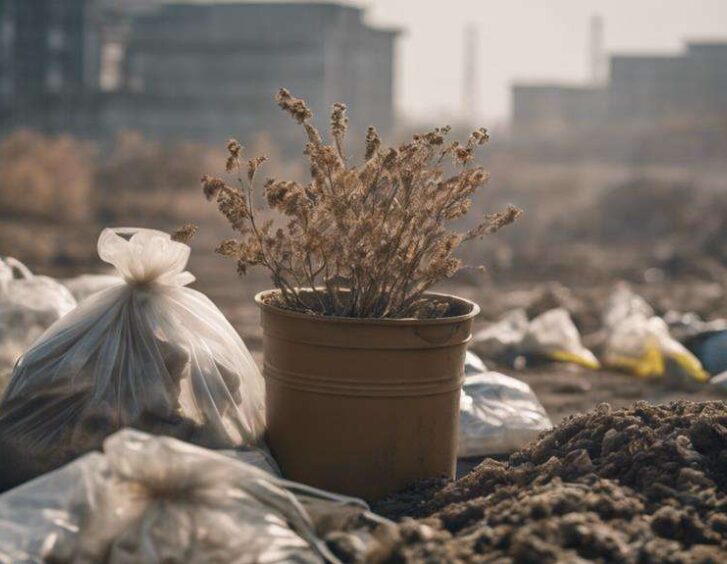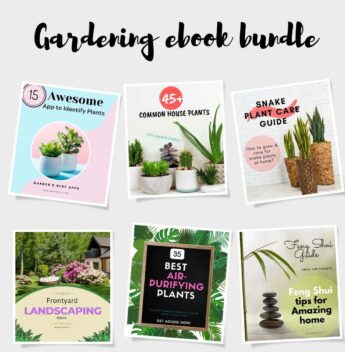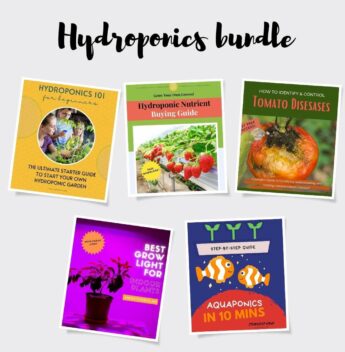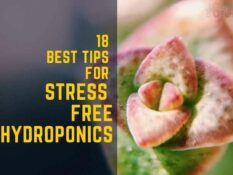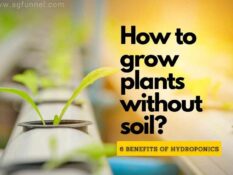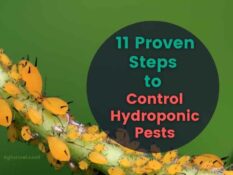Over-fertilizing your plants can do more harm than good. Not only does it damage your plants, but it also pollutes water sources and disrupts the delicate balance of your garden. Too much fertilizer can throw off the nutrient levels, attract unwanted pests, and cause issues like salt build-up, pH changes, and nutrient deficiencies.
This excess of nutrients can stress out your plants, leading to symptoms like yellow leaves and weak roots. It's crucial to spot signs of over-fertilization, such as yellow or brown leaves, wilting, and scorched foliage, to prevent any lasting damage.
By being aware of the dangers of overdoing it with fertilizer, you can work towards creating a harmonious ecosystem that benefits both your plants and the environment. And remember, a healthy and flourishing garden is the ultimate goal!
Key Takeaways
• Excessive fertilizer usage harms plants, causing yellow leaves, shriveled roots, and nutrient imbalance, leading to poor plant health.
• Over-fertilization contaminates waterways, disrupting aquatic ecosystems and forming oxygen-depleted zones.
• Synthetic fertilizers provide quick results but harm soil health and the environment, while organic fertilizers promote sustainable nutrient cycling and healthier soil.
• Fertilizer overload symptoms include yellowing or browning leaves, wilting, and burnt foliage, requiring early identification to prevent long-term harm.
• Preventing fertilizer overload is crucial to avoid environmental damage, and proactive steps are needed to mitigate its impact.
Effects of Excessive Fertilizer Usage
When you over-fertilize, you're not only harming your plants, but also contaminating waterways and disrupting the delicate balance of your soil's ecosystem. This can lead to a nutrient imbalance, causing your plants to receive too much of a good thing, which can be detrimental to their health.
Additionally, excessive fertilizer can attract pests, creating more problems for your garden. As you add more fertilizer, you're creating an environment where pests thrive, making it harder to maintain a healthy garden.
Harm to Plants and Soil
Fertilizer overload can stress your plants, causing yellow leaves, shriveled roots, and defoliation. It can also alter your soil's pH, leading to salt accumulation and nutrient imbalance.
When you over-fertilize, you disrupt the delicate balance of plant nutrition, making it harder for your plants to thrive. Your soil's health also suffers, as excessive fertilizer application can lead to salt buildup, pH changes, and nutrient deficiencies. This can have long-term consequences for your soil's fertility and overall ecosystem.
Synthetic Vs Organic Fertilizers
You have a choice to make when it comes to fertilizing your plants: synthetic or organic, each with its own set of benefits and drawbacks.
Synthetic fertilizers might provide quick results, but they can harm soil health and the environment. On the other hand, organic fertilizers promote sustainable nutrient cycling and healthier soil. They release nutrients slowly, reducing the risk of over-fertilization.
Organic options like compost, manure, and vermicast improve soil health, reducing the need for harsh chemicals. By choosing organic, you'll create a balanced ecosystem that benefits your plants and the environment.
Identifying Fertilizer Overload Symptoms
If you've been over-enthusiastic with the fertilizer, your plants will soon let you know, displaying telltale signs of distress that can't be ignored.
Recognizing signs of fertilizer overload is essential to preventing damage to your plants. Keep an eye out for yellowing or browning leaves, wilting, or burnt foliage – these are all indicators that your plants are suffering from fertilizer burn.
Preventing damage starts with identifying these signs early on. Be aware of the symptoms, and take action to flush out excess fertilizer or dilute its effects. By staying vigilant, you can prevent long-term harm to your plants and create a healthier growing environment.
Environmental Consequences of Over-Fertilization
As you've learned to identify the signs of fertilizer overload in your plants, it's equally important to recognize the devastating impact over-fertilization can have on the environment.
When excess fertilizers enter waterways, they can cause waterway contamination, leading to ecosystem disruption. This, in turn, creates an imbalance of nutrients, disrupting aquatic life. The consequences are dire, with oxygen-depleted zones forming, harming aquatic life.
Additionally, the excess nutrients can stimulate excessive algae growth, further depleting oxygen. It's imperative to acknowledge these environmental consequences and take proactive steps to prevent fertilizer overload.
Benefits of Organic Fertilizer Alternatives
Nature provides a wealth of organic fertilizer alternatives that promote healthier soil, reduced crop damage, and sustainable nutrient cycling. You can choose from a variety of natural options that benefit both your garden and the environment.
Nutrient-rich compost, for instance, is a great way to replenish your soil's nutrients without harming the ecosystem. By adopting sustainable gardening practices, you'll reduce your carbon footprint and create a thriving ecosystem.
Organic fertilizers release nutrients slowly, allowing your plants to absorb them as needed. This approach also encourages beneficial microorganisms, which helps to break down organic matter and recycle nutrients.
Choosing the Right Organic Fertilizer
When selecting an organic fertilizer, you'll want to consider factors like soil type, plant requirements, and nutrient release rates to find the perfect match for your garden. As an organic gardener, you're dedicated to sustainable practices that promote healthy soil and nutrient cycling.
Take into account your soil's pH level, moisture retention, and nutrient deficiencies when choosing a fertilizer. Look for products labeled as 'slow-release' or 'microbially-rich' to guarantee a steady supply of nutrients.
Some organic fertilizers, such as compost or worm castings, are rich in beneficial microbes that enhance soil health. By choosing the right organic fertilizer, you'll establish a thriving garden ecosystem that supports your plants' growth and well-being.
Tips for Proper Fertilizer Application
To guarantee your plants receive the necessary nutrients without over-fertilizing, you'll want to master the art of proper fertilizer application. This involves more than just following the product's instructions. You should choose slow-release, microbially-rich fertilizers like compost or worm castings to promote healthy soil and nutrient cycling.
When applying fertilizer, dilute it according to the instructions and avoid mega-dosing. Opt for small, incremental side-dressings, and fertilize only once per season if your plants are growing vigorously.
Avoiding Fertilizer Pollution in Waterways
By taking steps to prevent fertilizer runoff, you can greatly reduce the amount of pollutants that enter our waterways and harm aquatic life. Preventing contamination is essential for waterway protection, and it starts with responsible fertilizer use.
When you apply fertilizers, make sure to follow the instructions and avoid over-fertilizing. This will reduce the amount of excess nutrients that can seep into waterways, causing harm to aquatic ecosystems. Additionally, consider using organic fertilizers, which release nutrients slowly and reduce the risk of runoff.
Sustainable Fertilizer Practices for Healthier Soil
Your soil's health depends on adopting sustainable fertilizer practices that promote a thriving ecosystem, rather than relying on synthetic quick-fixes that can harm it in the long run. By embracing soil regeneration and sustainable farming methods, you can create a balanced ecosystem.
Organic gardening and nutrient cycling are key to maintaining healthy soil. Use natural fertilizers like compost, aged manure, or decomposed leaves to promote slow and steady growth. Avoid over-fertilizing, as it can lead to soil degradation and water pollution. Instead, focus on building soil health through sustainable practices.
Frequently Asked Questions
Can I Fertilize My Indoor Plants With Outdoor Fertilizer Products?
When deciding if you can fertilize your indoor plants with outdoor fertilizer products, prioritize indoor safety. Always check the product labels to confirm they're suitable for indoor use.
Outdoor fertilizers might be too potent for indoor plants, causing more harm than good. Opt for balanced, water-soluble fertilizers specifically designed for indoor plants to avoid damaging your plants and maintaining a healthy environment.
How Long Does It Take to Reverse the Effects of Fertilizer Burn on Plants?
You're wondering how long it takes to reverse fertilizer burn on your plants. The good news is that with proper care, your plants can recover.
Start by flushing out excess fertilizer with plenty of water. Then, repot your plant in fresh, well-draining soil with a pH balancer to counteract any damage.
Provide ideal growing conditions, and your plant should recover within 2-6 weeks.
Soil remediation and plant recovery take time, but with patience and care, your plant can thrive again.
Are Organic Fertilizers More Expensive Than Synthetic Alternatives?
When comparing costs, you'll find that organic fertilizers might be more expensive upfront, but their production methods are often more labor-intensive and sustainable.
Synthetic fertilizers, on the other hand, are mass-produced, making them cheaper. However, consider the long-term benefits of organic fertilizers, like healthier soil and reduced environmental harm.
Weighing the costs, you might find that organic options are worth the extra investment for a more sustainable future.
Can I Use Fertilizer Meant for Vegetables on My Flower Garden?
You're wondering if you can use fertilizer meant for vegetables on your flower garden. The answer is, it's not the best idea.
Vegetable fertilizers are formulated to provide specific nutrients for veggies, which mightn't be ideal for flowers. Flowers have different nutrition needs, and using the wrong fertilizer can affect their growth.
Instead, choose a balanced, water-soluble fertilizer specifically designed for flowers to promote healthy growth and blooming. This will guarantee your flowers receive the right nutrients for best soil structure and flower nutrition.
Is It Safe to Fertilize My Lawn During the Hottest Summer Months?
When considering fertilizing your lawn during the hottest summer months, exercise caution. Summer drought and heat stress can make your lawn more susceptible to fertilizer burn.
Avoid applying fertilizers during extreme heat, as this can cause more harm than good. Instead, wait until the cooler months when your lawn is more resilient.
This will help guarantee the fertilizer is absorbed effectively, promoting healthy growth without risking damage.


